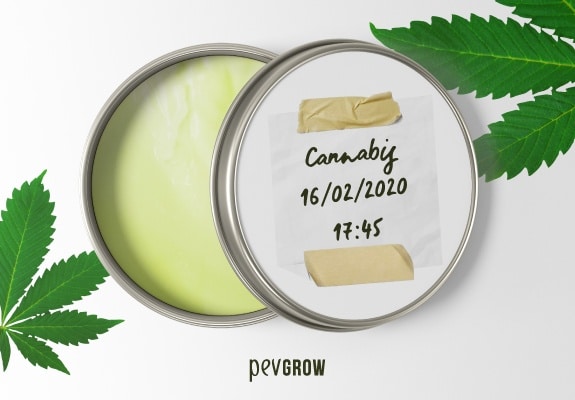

23-05-2023 09:00:40 - Updated: 23 May, 2023
Cannabis is a plant known for its psychoactive and medicinal effects, but did you know that it also has calories? Cannabis consumption can have an impact on weight and appetite control, and in this article we tell you everything you need to know about cannabis calories. In addition, we break down some myths about its relationship with body weight and present you with the most relevant facts on this subject. Don’t miss this important information about cannabis and its relationship with calories!
📖 Does marijuana have calories?
Yes, marijuana contains calories. However, the amount of calories it contains is minimal and it is not a significant source of nutrition. Also, most people consume marijuana in the form of smoke or vapor, which does not add many calories to their diet. So it can be said that although marijuana contains calories, it is not a significant source of nutrition and its consumption will not significantly affect your daily caloric intake.
This could be extrapolated to other products such as fruits or vegetables, which contain a certain number of calories and when we eat them we can take advantage of them in our nutrition, but of course, if you burn them to consume them the body will not be able to assimilate them in the same way as when you eat these foods.
👾 Does smoked marijuana contain calories?
Yes, smoking marijuana can add calories to your diet, but the amount is insignificant, so much that many people say the total is zero, although this is not really the case. When you smoke marijuana, you burn small amounts of carbohydrates and fat, which means you are consuming calories. However, the amount of calories taken in by smoking marijuana is so low that it is unlikely to have a significant impact on your daily caloric intake.
Also, smoking marijuana can decrease appetite as well, depending on the strain and timing, which could lead to an even lower caloric intake. Conversely it can also happen, we all know the hunger that smoking certain strains can cause, leading you to devour all the munchies you have on hand.
🧐 Does ingested marijuana contain calories?
Yes, eating marijuana can add calories to your diet. When you eat marijuana, you are consuming the leaves, flowers or extracts of the cannabis plant, which contain carbohydrates and fats that provide calories. However, the amount of calories you take by eating marijuana depends on the amount and type of cannabis product you consume.
Some edible cannabis products, such as gummies or brownies, may also contain other high-calorie ingredients, which would increase their caloric content. In summary, eating marijuana may add calories to the diet, but the amount varies by product and its caloric content should be considered if you are eating a controlled calorie diet.
🎯 Does vaporized marijuana contain calories?
No, vaping marijuana does not add calories to your diet. When you vape marijuana, you are inhaling cannabis vapor, which is produced by vaporizing the cannabinoids present in the plant. You are not burning plant matter, so you are not consuming carbohydrates or fats that provide calories. Also, the amount of vapor inhaled when vaping marijuana is very low and does not have a significant impact on daily caloric intake.
⛳ How many calories does marijuana contain?
Marijuana itself contains calories, but the amount is very low and varies depending on the type of marijuana and the way it is consumed. According to reports, marijuana contains about 9 calories per gram. However, most people do not consume enough marijuana for this to have a significant impact on their daily caloric intake. Additionally, the most common way to consume marijuana is by smoking or vaporizing it, which does not add calories to the diet. In summary, although marijuana contains calories, the amount is very low and is unlikely to have a significant impact on a person’s caloric intake.
➕ How many calories do marijuana seeds have?
Marijuana seeds contain around 5-7 calories per seed, depending on size and variety. Additionally, marijuana seeds are also rich in protein, healthy fats, and fiber, making them a good choice for nutritious food. However, it is important to note that marijuana seeds also contain small amounts of THC, so they should not be consumed in large quantities if you wish to avoid the psychoactive effects of THC.
📲 So, does marijuana make you gain weight?
Marijuana itself does not make you gain weight. In fact, some studies suggest that marijuana consumption may be associated with a lower body mass index (BMI) and a lower risk of obesity. However, some of the cannabis edible products that are consumed may contain high amounts of sugars and fats, which could contribute to weight gain. Additionally, excessive marijuana consumption can increase appetite and make you feel hungrier than normal, which could lead to weight gain if food intake is not properly controlled.
✨ Conclusion
In conclusion, calories in cannabis are an interesting and relevant topic that may affect weight and appetite control in cannabis users. Although marijuana seeds and some cannabis extracts may contain calories, their consumption does not necessarily lead to weight gain, and in fact, some cannabinoids such as THCV may have appetite suppressant effects. It is important to remember that each person is unique and the effects of cannabis may vary depending on individual factors. In summary, the relationship between cannabis and calories is a fascinating topic that requires more research to fully understand its effects on the human body. By the way, if you like to enjoy ingested marijuana, I invite you to check out this recipe for Cannabis Brownies that I’m sure you’ll love.
⭐ Frequently Asked Questions
Does marijuana make you lose weight?
There is insufficient scientific evidence to support the claim that marijuana is slimming. Consumption as such does not necessarily lead to a decrease in the consumer’s own body weight, but there may be some active compounds in cannabis that help to inhibit hunger.
Does the cannabinoid THCV inhibit hunger?
Some studies suggest that the cannabinoid THCV may have an appetite suppressant effect, although more research is needed to fully understand its impact on weight control. THCV has been found to act as an antagonist of CB1 receptors in the brain, which are involved in the regulation of appetite and food intake. Also, some animal studies have shown that THCV can reduce food intake and decrease obesity. However, human clinical studies are still needed to confirm these findings. In summary, some studies suggest that THCV may have an inhibitory effect on appetite, but more research is needed to fully understand its impact on weight regulation and food intake in humans.





